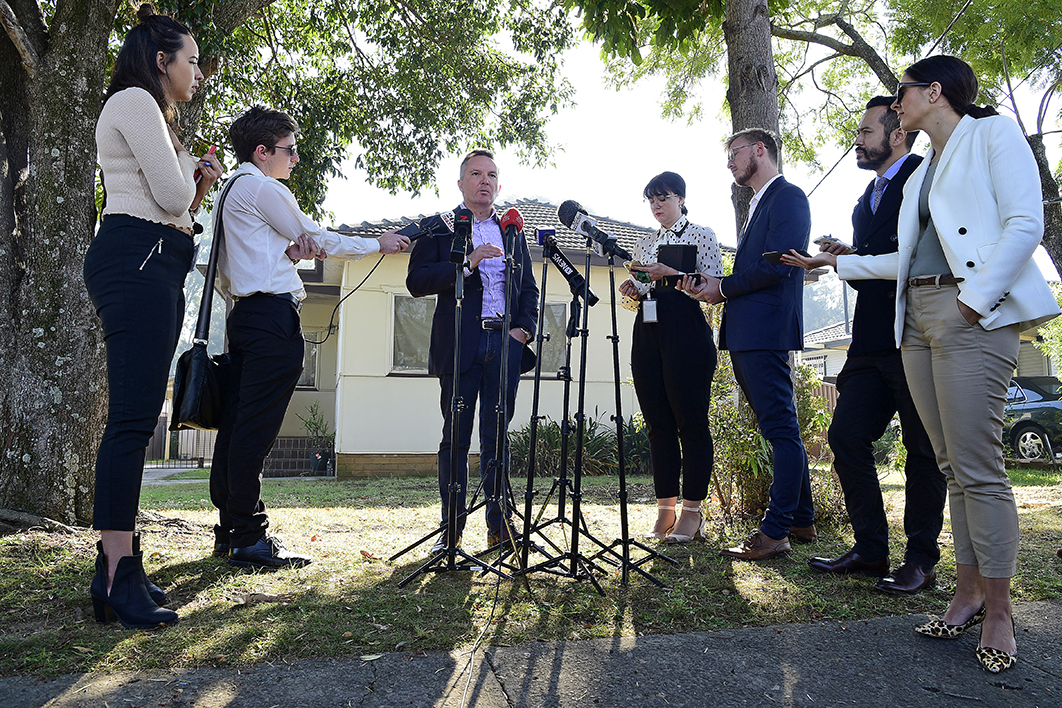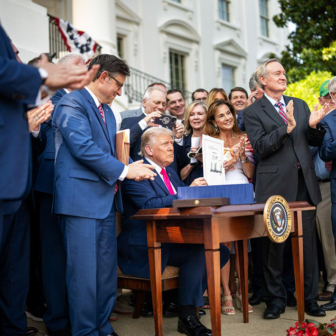What did we learn on Saturday? On the face of it, that voters were paying attention — and acted accordingly. The messages to politicians should be plain.
The primary impression is that divisive politics has been punished. Tony Abbott’s fate is emblematic, but we know that a number of those in the Coalition who wantonly tore at the processes of government had much to worry about. (Let’s simply note that Angus Taylor, Greg Hunt and Peter Dutton don’t seem to have had the time to participate in the national campaign.) Labor, remarkably, decided to take up the opportunity created by the Coalition’s own goals by kicking one of its own. Its campaign theme was fairness, but its tax message was intergenerational: one against the other.
Overall, it is fair to say that both major parties need to shed the idea of a “base.” In Australia, it’s irrelevant and in any case a euphemism. Voters have been loosening their loyalty for years in reaction to party identities that have more to do with narrow interests than the concerns of the broad middle. Since the election the prime minister and a number of Labor figures have claimed they embrace that message. They had better.
Voters are entitled to some anxiety about the outlook for themselves and their families. Living standards and expectations have risen to remarkable levels in a few generations, but we now face challenges that have not been evident for more than two decades. Technology and trade have produced great benefits but now threaten job security and stability. Rising global consumption — driven partly by the economic success of a country like China, which is also a source of Australia’s prosperity — has amplified doubts about sustainability. Short-term risks are rising, whether from the contest between the United States and China or from a variety of conflicts that may or may not eventuate, lately in the Middle East.
So when, on election night, the prime minister was laying concrete over the rubble of his government’s recent performance, he confirmed to voters that he understood two things. First, he referred often to the Canberra “bubble”: an unspoken promise to stop the indulgent Game of Thrones–style politics that has for too long characterised the affairs of the nation. Second, he acknowledged that if there was a miracle in this election it was the Coalition’s pulling out of a kamikaze dive and landing back where it began.
Voters pegged back the warriors who had embedded volatility and purposelessness in the Coalition government. For the five weeks up to 19 May, the people who had been prominent in the chaos of Coalition policymaking appear to have been confined to their homes in the hope of minimising the damage of a presumed storm. Scott Morrison was able to go about his campaign with nary a peep of dissent, and even though shambolic behaviour and events persisted — candidates ditched, the odd Barnaby Joyce brain explosion — his campaign gradually took on an unworried, unthreatening composure. Voters gave him a chance by scaring the bejesus out of a number of his belligerents.
Labor started where it had been for a long time: with a leader that the public did not want. On the evidence well established by data and any focus group, Labor’s best strategy would have started by putting Bill Shorten in a cupboard. It didn’t. Yet the knowledge of that handicap was evident everywhere in the campaign: from the fact of his constant appearances with more appealing campaign minders through to his own choice of shirt, emblazoned “Vote 1 Chloe Shorten’s husband,” on voting day.
Labor offset the personality problem with a big policy agenda that might have sounded comforting, but wasn’t. Shadow finance minister Jim Chalmers made the simple point plain when he said, after the election, that it is essential that budget deficits be reined in. Yet the tax plans Labor proposed weren’t cast as insurance against a coming storm — rather, they were taking back “gifts” to superannuants and milking the “top end of town.” The Coalition kamikaze pilots sat back, no doubt in awe, while Labor’s “retiree tax” imploded.
Why did Labor make such basic errors? We have to assume that it comes down to the same problem faced by the Liberals: the base. The organisational power in Labor clearly lies with its union affiliates, and it shows. Shorten campaigned like a salesman for union membership. His policy pitch came across as a grab bag fashioned to an agenda that often sounded like it came directly from the ACTU — not least when it promised wage rises for particular employee groups. Shorten talked a lot and it was often in a dialect peculiar to union-movement debates. He was a walking, talking advertisement for divisive politics.
Two groups of voters sent remarkably clear signals on Saturday. In Warringah, electors told the Liberal Party that they are not part of the base. The base as defined by Tony Abbott was rejected with vigour. Not far away, in Hunter, the once-solid unionists of the coalmines gave Labor a huge kick (as they did in Queensland). The base as defined by the CFMEU walked away from Labor.
The parliament that MPs will go back to will have a familiar composition: a Coalition government with a small majority and a Senate balanced evenly around a crossbench of smaller parties. But all of the participants will have had a lot to digest because the bubble has burst.
We have to hope that some of the encouraging early signs will persist and that sensible people will maintain a focus on mainstream concerns and primary issues. Jim Chalmers is right: the budget must be made more robust and our finances ready for the risks we face. And Arthur Sinodinos is spot-on when he says energy policy must catch up with the reality of what is happening to Australia’s energy industries and match climate policy with community concerns. In both cases there are uncontroversial middle-ground options and, while none would likely suit any of the “base” groupings, the urgency of consensus and action is intensifying.
Consider that just last week the US–China trade negotiations ended with the Chinese pointedly tearing up a 150-page plan and opting to confront the Americans rather than accept domestic law changes. China’s economy is already showing signs of strain and Australia can’t assume that the benefits of China trade will remain as they have been. In the same week came events in the Middle East that might well be precursors to conflicts that, among other things, would threaten the supply of energy through the Straits of Hormuz. At home, the economy is slowing and confidence is falling.
In short, voters appear to be alert to the broad picture and alert to the messages coming from the bubble. They have acted. The question now is: did those inside the bubble get the memo? •




